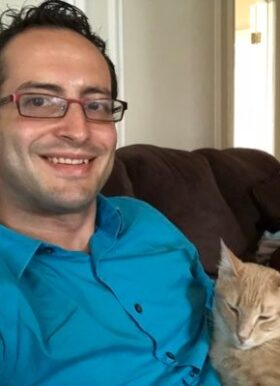Knight Postdoc Fellows

Randall J. Bateman, MD
- Email: batemanr@wustl.edu
Dr. Bateman’s lab accomplishments include pioneering the central nervous system Stable Isotope Labeling Kinetics (SILK) measurements in humans, furthering insights of human circadian patterns of amyloid-beta and soluble APP, and human in vivo control of the alpha-secretase, beta-secretase, and gamma-secretase processing of amyloid-beta. Dr. Bateman’s research in DIAN has provided evidence for a cascade of events beginning decades before symptom onset that leads to AD dementia. He has received a number of awards including the Beeson Award for Aging Research, Alzheimer’s Association (Zenith Award), Scientific American, Chancellor’s Award for Innovation and Entrepreneurship (Washington University), the Glenn Award for Aging Research, and the MetLife Foundation Award for Medical Research. Dr. Bateman has been the primary mentor for junior faculty, clinical fellows, post-doctoral researchers, and graduate and medical students, who have been successful in their desired scientific careers.

Jeffrey Burns, MD, MS
Dr. Burns' research program supports clinical trials testing new approaches to treating Alzheimer's disease and a variety of research projects focused on how lifestyle issues such as diet and exercise can be used to prevent or delay the onset of Alzheimer's disease. His research is supported by the National Institutes of Health and by generous contributions from the community.
- Email: jburns2@kumc.edu

Gregg S. Day, MD
Gregory S. Day, M.D., is a neurologist, with special interest in the diagnosis and management of Alzheimer disease and related causes of dementia. In addition to clinical work, Dr. Day is active in clinical research. He conducts observational studies and clinical trials in Alzheimer disease, rapidly progressive dementia and autoimmune-causes of cognitive impairment.
- Email: Day.Gregory@mayo.edu

Nupur Ghoshal, MD, PhD
Dr. Ghoshal's research has focused on mechanisms underlying neurodegenerative disorders beginning with the tau protein in Alzheimer's disease (AD) and more recently with the progranulin protein in frontotemporal dementia (FTD). Currently developing a cohort of individuals from dominantly inherited FTD families with mutations in tau or progranulin with a focus on characterizing them clinically and by using biomarkers.
- Email: ghoshaln@wustl.edu

Justin Long, MD
Dr. Long's research interests include understanding the pathophysiology of Alzheimer disease, specifically as it relates to the role of cholesterol metabolism in modulating the immune response in animal models of Alzheimer disease pathology.
- Email: justin.m.long@wustl.edu

Erik Musiek, MD, PhD
Dr. Musiek's research interests include: Aging, oxidative stress, and circadian clock genes in neurodegenerative diseases.
- Email: musieke@wustl.edu

Suzanne Schindler, MD, PhD
Dr. Schindler is a clinical neurologist and dementia specialist. Dr. Schindler is also trained as a neuroscientist and her overall research goal is to improve the diagnosis and treatment of Alzheimer disease and related disorders. Dr. Schindler's recent research has been on developing and testing fluid (blood and CSF) biomarkers for Alzheimer disease and is currently working towards predicting if and when cognitively normal individuals will develop symptoms of Alzheimer disease dementia based on a single blood or CSF sample and individual characteristics.
- Email: schindlers@wustl.edu

Yunshuo "Caroline" Tang, MD
Dr. Tang completed her MD and PhD degrees at the University of California, San Francisco, working with Drs. Arturo Alvarez-Buylla, Michael Stryker, and John Rubinstein on the role of specific nerve cell populations in brain plasticity. She then came to Washington University as a resident in Adult Neurology. Dr. Tang was awarded a R25 grant from the National Institutes of Health to work with Dr. Gutmann. Her studies will focus on understanding how NF1-optic gliomas cause vision loss, and how the nerve cells in the eye can be protected. She will also be a team member of the Gilbert Family Foundation Vision Restoration Initiative.
- Email: tangyunshuo@wustl.edu

Rawan Tarawneh, MD
My current research focuses on the use of bioinformatics and genomics to identify new protein and gene targets for disease-modifying treatments in Alzheimer’s disease and frontotemporal dementia. I am the primary investigator of several clinical and translational studies in Alzheimer’s disease and frontotemporal dementia. I also enjoy teaching students, residents and fellows.
- Email: rawantarawneh@gmail.com
